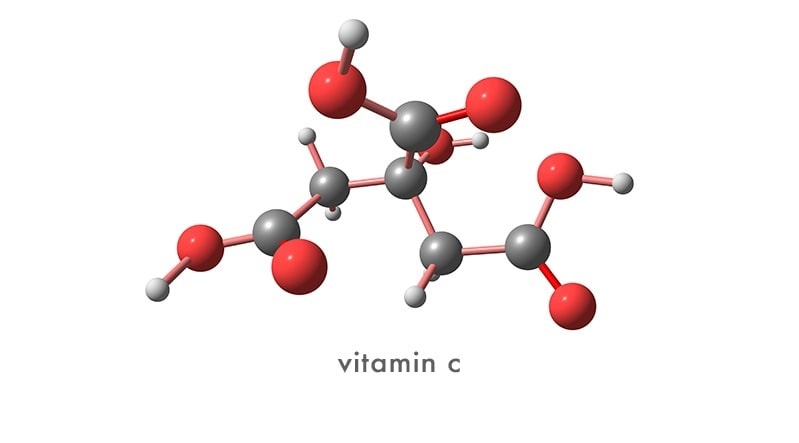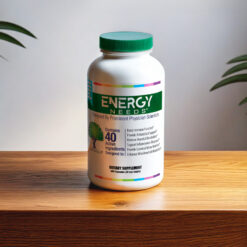$84
VITAMIN C (ALSO KNOWN AS ASCORBIC ACID)
Vitamin C cannot be manufactured by humans and is obtained exclusively from the diet. Vitamin C is a powerful antioxidant, and a key component of the respiratory chain involved in energy metabolism. It also helps the body form and maintain connective tissue, including bones, blood vessels, and skin. Deficiency of vitamin C, termed scurvy, can appear in people with highly restrictive diets. Poor gut absorption, manifested as chronic diarrhea, can intensify vitamin deficiency from a poor diet. Typical symptoms include bleeding (especially of the gums), bruising, rash, slow wound healing, abnormal hair or nails, weakness, fatigue, joint disease, and frequent infections. Vitamin C is often recommended for a variety of conditions such as cancer prevention, improve immunity to common “colds”, helping neutralize the effects of nitrites preservatives in some foods, prevent cataracts, and decrease cholesterol levels. At moderate dosing, like that in EnergyNeeds®, side effects are rare, however, high dosing can result in side effects, as well as have a pro-oxidant effect.
Vitamin C in EnergyNeeds®
Vitamin C is added in order to provide a wide basis of nutrition, and for its antioxidant properties in ameliorating an underlying defect in redox metabolism or mitochondrial dysfunction.

Vitamin C (also known as ascorbic acid) cannot be manufactured by humans and is thus a true vitamin, obtained exclusively from the diet.
Vitamin C is a powerful antioxidant, and a key component of the respiratory chain involved in energy metabolism. It also helps the body form and maintain connective tissue, including bones, blood vessels, and skin.
Deficiency of vitamin C, termed scurvy, is often thought of as a disease of the past, but even in rich countries deficiency can appear in autistic children with restrictive diets (https://www.ncbi.nlm.nih.gov/pubmed/26590972) that are low on fresh fruits and vegetables. Typical symptoms include bleeding (especially of the gums), bruising, rash, slow wound healing, abnormal hair or nails, weakness, fatigue, joint disease, and frequent infections.
Vitamin C may help protect against a variety of cancers by combating free radicals, and helping neutralize the effects of nitrites (preservatives found in some packaged foods) that may raise the risk of certain forms of cancer. Supplemental vitamin C may also lessen the duration and symptoms of a common cold, help delay or prevent cataracts, support healthy immune function, and decrease total and LDL (“bad”) cholesterol and triglycerides.
Vitamin C is water-soluble vitamin and thus considered to be generally non-toxic. At moderate dosing, like that in most over-the-counter supplements and in EnergyNeeds® (1,000 mg a day in adults), side effects are rare. However, high dosing, over about 1,000 mg a day in adults, may increase the risk for kidney stones, and dosing over 2,000 mg a day in adults may have additional side effects, such as flushing, nausea, headache, and increased blood sugar. Safe dosing in children are correspondingly lower. Vitamin C is often taken as an antioxidant, but high dosing may have a pro-oxidant effect. Thus, moderate dosing is generally recommending for supplementation.
Laboratory testing can reveal the presence of a deficiency of this nutrient, but is generally not likely to have clinically utility.
How and why Vitamin C is used in EnergyNeeds®
Vitamin C is added in order to provide a wide basis of nutrition, and for its antioxidant properties in ameliorating an underlying defect of redox/ROS/free radical metabolism or mitochondrial dysfunction. The dosage was carefully selected to maximize anti-oxidant effects while minimizing any side events. Side effects are unexpected at the doses used in EnergyNeeds®.
Order EnergyNeeds®Today
Formulations










